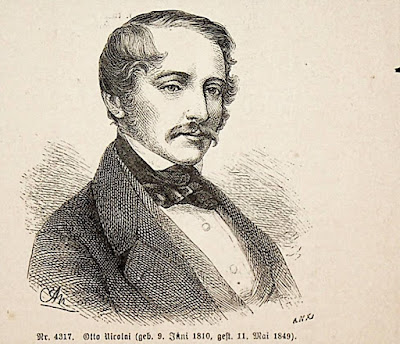Daniel-François-Esprit Auber, born January 29, 1782 in Caen/France and passed away May 12, 1871, was a leading composer of
French opera from the 1820s onwards, collaborating from then for
some thirty years with the librettist Augustin- Eugène
Scribe. He is particularly known for his contributions to the
genre of opéra- comique, although one of his most famous
works is Masaniello or La muette de Portici (The Dumb Girl of
Portici), of which the first title is preferred in English. This
work, staged in Paris in 1828, began the era of French grand opera.
Auber wrote a considerable quantity of music, vocal and instrumental,
sacred and secular. He was respected by Rossini and Wagner, and
much honoured by the state in his life-time.
Operas
Auber's most popular operas are Fra Diavolo, Le cheval de bronze (The
Bronze Horse), Les diamants de la couronne (The Crown Diamonds), and
the seminal grand opera Masaniello or La muette de Portici (The Dumb
Girl of Portici). It's funny, that only Auber's 13th opera "Le Macon" became a great success. I love all his compositions.







